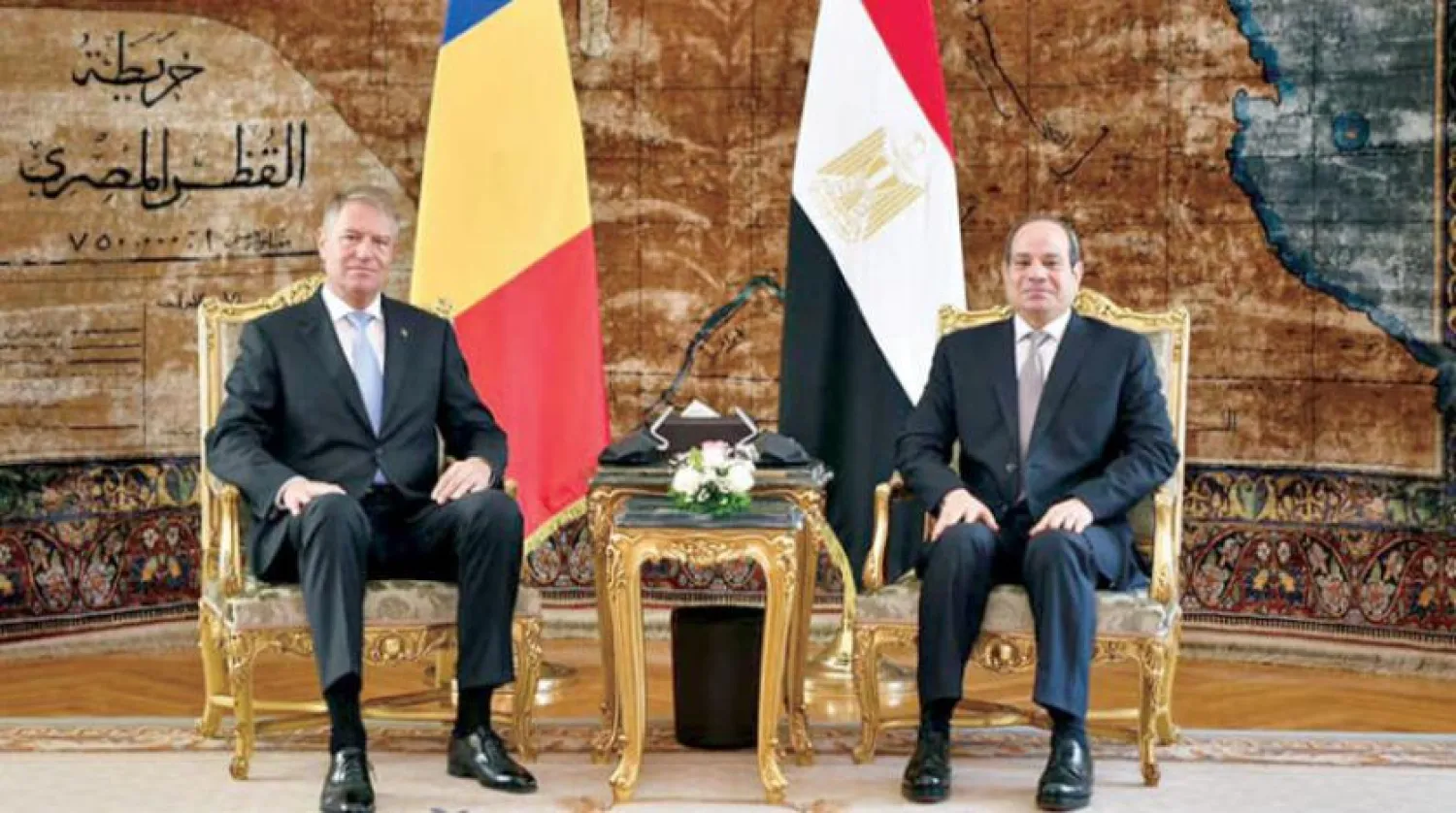Egypt and Romania agreed Wednesday on the importance of exerting concerted efforts to achieve peaceful solutions to regional disputes.
This came during a meeting between Egyptian President Abdel Fattah El-Sisi and his Romanian counterpart, Klaus Iohannis, at Al-Ittihadiya Palace in Cairo.
The Egyptian Presidency’s spokesperson, Bassam Radi, said Sisi looked forward to further advancing bilateral cooperation with Romania.
Sisi had visited Bucharest in June 2019, marking the first visit by an Egyptian President to Romania in about 15 years.
Radi said the two presidents discussed ways to promote cooperation, mainly in trade, and they commended the convening of the Egyptian-Romanian Economic Forum on the sidelines of the Romanian President’s current visit to Egypt.
The talks also touched on cooperation in the field of energy, given the two countries’ commitment to diversifying their sources of energy.
Also, the two presidents underscored the importance of exerting concerted efforts to achieve peaceful solutions to regional disputes.
Within this framework, they agreed on the importance of holding elections in Libya in December 2021 to give the Libyan people the chance to choose a united government that would preserve the country’s security, stability, unity and sovereignty.
Sisi and Iohannis stressed the need to commit to UN resolutions on the withdrawal of all mercenaries and foreign forces from Libya.
The two officials also tackled the latest developments in efforts to revive the peace process in the Middle East, and ensure calm between Israel and the Palestinians.
Sisi reviewed his country’s efforts to combat terrorism and extremist ideology, underlining the need for the international community to address its root-causes through a comprehensive approach.
Sisi underscored Egypt’s commitment to combating illegal migration and highlighted his country’s efforts in successfully addressing the movement of refugees across the Mediterranean.
For his part, Iohannis confirmed his keenness on furthering coordination and consultations between the two countries, highlighting Egypt’s pivotal role under the leadership of Sisi to reinforce stability and security in the Middle East and Africa.
He valued Egyptian efforts to combat terrorism and extremist ideology, as well as the successful Egyptian experience in addressing illegal migration, also lauding Cairo’s efforts to enhance dialogue among African and Arab countries and EU states.
“Romania is keen on supporting Egypt’s stance and conveying it to the EU, in light of it being one of the most important neighborhood countries to the EU,” Radi said.









